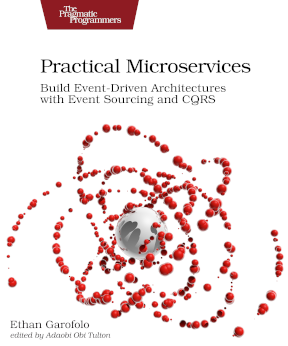It’s time again for the Utah Microservices Meetup!
I’m thrilled to share that Scott Bellware, co-creator of the Eventide Project, is presenting.
Abstract
Diagnostic substitutes can be quite elaborate, offering special-purpose APIs built for recording and inspecting structured telemetry data. Eventide’s message writer substitute is a good example of a thorough implementation of a substitute making use of Eventide’s Dependency library, its Telemetry library and its Protocol Discovery pattern and supporting Reflect library. The Doctrine of Useful Objects documents the full and complete implementation of special-purpose diagnostic substitutes, and has served as an entry point for developers getting started on their own diagnostic substitutes for their own systems. But it’s not always necessary to go through the detailed work of building and testing special-purpose diagnostic substitutes that you plan to package and ship with your libraries.
Sometimes you just need a very basic substitute that can simply prove that some object had been actuated, and prove how it was actuated. General purpose substitutes don’t provide an API that’s finely-tuned to the domain, but they can provide just enough diagnostic feedback to do a good job covering a basic need. The Mimic library offers all the tools to build basic general-purpose diagnostic substitutes that do just enough of a good job without building the more heavy-weight, telemetry-enabled substitutes that ship with Eventide’s own tools.
This presentation demonstrates the use of Eventide’s Mimic library to build basic, low-effort diagnostic substitutes that are already compatible with Eventide’s dependency macro. It also reviews some of the basics of diagnostic substitutes, different kinds of substitutes, and the recommended level of rigor required for the different kinds of substitutes.
Scott’s Bio
Scott Bellware is a co-founder of the Eventide Project and Message DB, the author of the Doctrine of Useful Objects, and the developer of the libraries and techniques used to provide diagnostic substitutes with Eventide’s tools. He works with software teams on evented and message-based systems, as well as architecture remediation. He’s been on a ten-year mission to incorporate all the good things he’s learned in the distributed systems world with all the good things he’s learned in the mainstream web app world. He’s a software professional with 25 years of industry experience, and has been hands-on in virtually every role in a software organization from developer, to QA, to product manager, to CTO. Scott spends most of his waking hours in front of a computer, but is equally happy up to his elbows in garden soil making delicious things grow in his garden.

